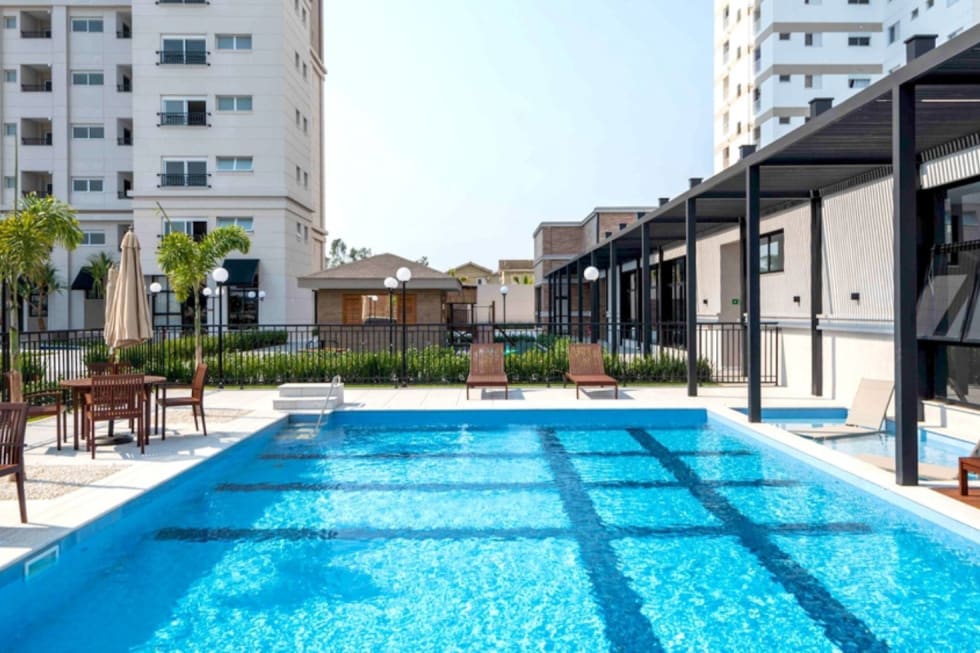- 46 units available
- 1 bed • 2 bed • 3 bed
- Amenities
In unit laundry, Hardwood floors, Dishwasher, 24hr maintenance, Stainless steel, Walk in closets + more

Some of the hidden costs of renting include fees for utilities, parking, amenities, maintenance, insurance, and more, often not listed in the advertised rent. These apartment fees extras can tack on $100–$500/month to your actual housing cost, turning a seemingly affordable unit into a budget strain.
This article breaks down every hidden expense category renters should factor in, from move‑in fees to shared Wi‑Fi charges, so you can avoid surprise bills and understand what to look for renting an apartment.
Before you even move in, most landlords or property managers charge an application fee to cover the cost of background and credit checks. These rental fees typically range from $30 to $75 per applicant but can be higher in competitive markets.
While some states cap these fees or require itemized breakdowns, others don’t, so they can add up fast, especially if you're applying to multiple places. Always ask if the fee is refundable (it usually isn’t), and be cautious of landlords who charge above-average amounts without transparency.
The cost of moving into an apartment doesn’t stop at the moving truck. There are security deposits, pet deposits, first and last month’s rent, cleaning fees, elevator reservations, and utility setup charges. These incremental apartment expenses can easily total hundreds or even thousands of dollars before you’ve unpacked a single box.
Some landlords may also charge move-in coordination fees or require renters insurance upfront. Budgeting for these extras is essential if you want to avoid surprises on move-in day.

A security deposit is typically equal to one month’s rent, but in competitive markets or high-risk units, it can be higher. While it’s refundable, you’ll need to pay it upfront, and that can significantly increase your apartment costs on move-in.
Some landlords require separate deposits for pets, keys, or cleaning. Make sure your lease spells out what’s required and what conditions must be met to get your money back. Always document the unit’s condition at move-in to protect yourself when it’s time to move out.
Utilities can add $100–$300 or more to your monthly housing bill, depending on your location and apartment size. Some of the most common charges include electricity, gas, water, trash, and sometimes sewage. Not all of them are always disclosed upfront.
While some buildings bundle utilities into the rent, many leave it to renters to handle separately. Always ask, “What bills do you pay when renting an apartment?” and request average monthly costs before signing. Unexpected utility bills are one of the biggest hidden costs while renting that can blow your budget.
Having your furry friend with you can cost you. Most apartments charge non-refundable pet fees upfront, which are usually between $200–$500, plus ongoing pet rent that can range from $25 to $75 per month.
Some also require a pet deposit for potential damages, which may or may not be refunded. These fees for apartments can add up quickly, especially if you have multiple pets or a breed that’s subject to restrictions. We have tons of blogs that explore all you need to know about renting with pets.
*We have tons of blogs that explore all you need to know about renting with pets.
Apartments with luxe perks like pools, gyms, lounges, or coworking spaces often come with hidden lifestyle fees. These can be bundled into your rent or tacked on as monthly apartment fees known as amenity fees. Even if you don’t use them, you’ll still pay.
Some buildings also charge extra for access cards, package lockers, or even coffee bars. If amenities are included in the listing, ask whether they come with a cost or if they’re truly free to use.

Free parking isn’t always part of the deal. Many apartment complexes charge extra for reserved spaces, garages, or even outdoor lots, anywhere from $30 to $150 per month.
In urban areas, street permits or visitor passes can add another layer of cost. If you own a car, always ask what parking options are available and whether fees are monthly or bundled into your apartment costs.
Need extra space? Some buildings offer on-site lockers or garages for an added monthly fee. Others might not offer storage at all, pushing you toward off-site units, which can cost even more.
Before signing a lease, ask about built-in storage and weigh the true cost of renting an apartment with all your belongings. Downsizing or decluttering could save you serious money.
While basic maintenance is typically included in your rent, some landlords tack on charges for repairs, appliance upkeep, or even pest control. These apartment expenses might appear as monthly apartment fees.
If you’re renting in a building with shared systems (like HVAC or plumbing), make sure it’s clear who pays when something breaks. Always ask what’s covered and what isn’t, and get it in writing.
Renters insurance is often required by landlords and usually costs $10–$30 per month. It covers your personal belongings in case of theft, fire, or certain types of damage, and may also include liability protection.
While it’s a smart safeguard, many renters don’t factor it into the average cost for renting an apartment until move-in day. Check if your lease mandates a specific coverage level or provider.
In buildings with elevators, you might be charged a reservation or usage fee when moving in or out, especially if there’s a designated service elevator. These apartment fees help cover building staff time, elevator padding, and any potential damage during your move.
Some buildings require advance booking, so it’s smart to ask upfront.
In some cities, especially New York and Boston, renters are responsible for paying a broker’s fee, which is often equal to one month’s rent or 10–15% of the annual lease. This fee goes to the real estate agent who helped secure your apartment, even if you found the listing yourself.
While some buildings absorb this cost (look for “no fee” listings), many do not. Always confirm who’s responsible for paying the broker and whether the fee is negotiable.

Some landlords require the last month’s rent upfront along with your security deposit and first month’s rent. This means you could need three months’ worth of rent saved just to move in.
While it’s meant to secure your final month in the unit, it can be a major upfront burden, especially when combined with other costs of renting an apartment. Always ask if this payment is required before committing to a lease.
Hidden fees when renting an apartment can turn what might have seemed like an affordable apartment into a budget-buster. From utilities and insurance to parking and pet fees, it’s essential to know what you’re really signing up for so you can budget more accurately for your monthly rent.
Ready to find a place that fits your true budget? Use our personalized quiz to match with rentals that work for you.
In many states, landlords are legally required to disclose fees before you sign a lease, but that doesn’t always mean they’ll advertise them in the listing. It’s up to renters to ask for a full breakdown of potential costs.
No, pet rent and pet deposits are different. A pet deposit is a one-time, refundable fee meant to cover potential damage caused by your pet. Pet rent, on the other hand, is a recurring monthly fee simply for having a pet in the unit. Some landlords charge both, so make sure to clarify before signing.
Yes! Many fees, like parking, amenities, or even application costs, are negotiable, especially if you’re moving during the off-season or signing a longer lease. It doesn’t hurt to ask if a fee can be waived or if the rent can be adjusted to account for extras.
Move-in costs typically include the first month’s rent, last month’s rent, a security deposit, and application fees, which can easily add up to $3,000 or more depending on the market. Pet fees, renters insurance, and elevator reservation charges can push that even higher.
Landlords are usually responsible for maintenance and necessary repairs due to normal wear and tear. However, if the damage is caused by a tenant’s negligence or misuse, they can charge you for the repair. Always document any issues and communicate promptly to avoid disputes.
A lifestyle fee is a charge that covers access to amenities like fitness centers, pools, resident lounges, co-working spaces, and package lockers. These are often added monthly and may be mandatory, even if you don’t use the amenities.

In unit laundry, Hardwood floors, Dishwasher, 24hr maintenance, Stainless steel, Walk in closets + more
In unit laundry, Granite counters, Pet friendly, Stainless steel, Walk in closets, Gym + more